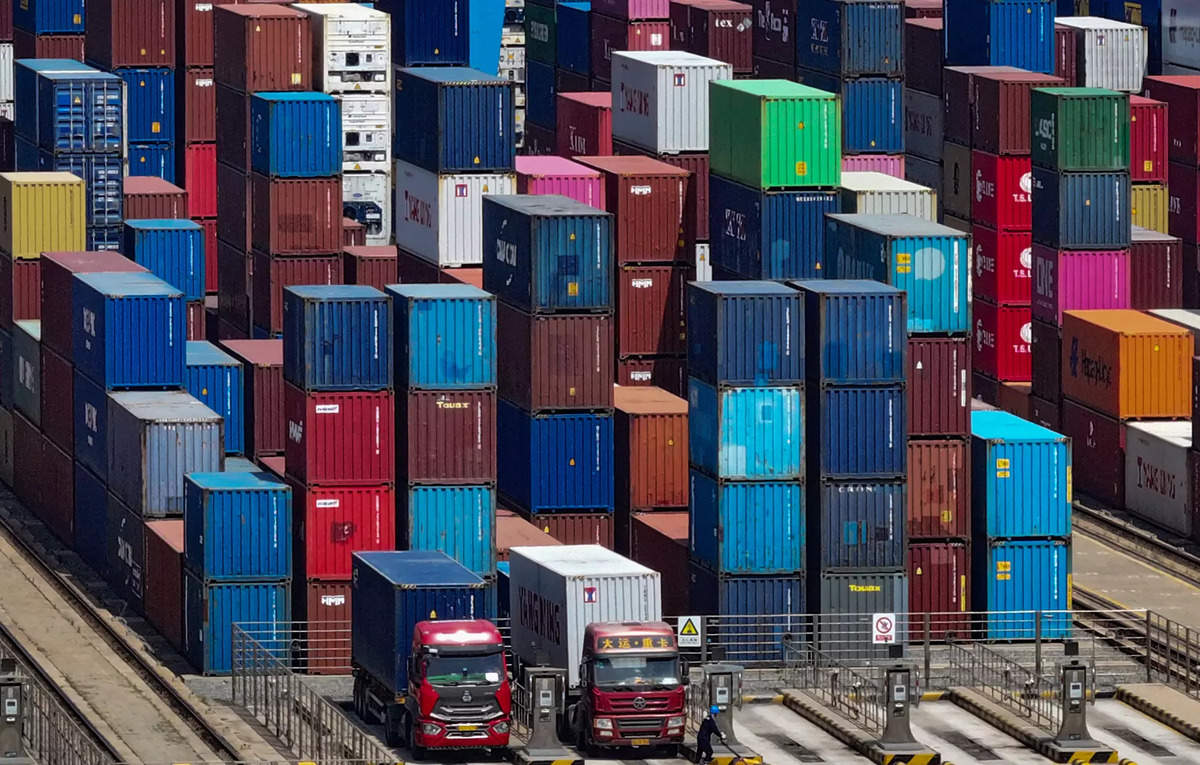


MUMBAI: Sajjan Jindal-led JSW Infrastructure Ltd is said to have finalised a deal to buy Navkar Corporation Ltd, the Mumbai-listed multi-modal logistics company, as India’s second biggest private port operator looks to strengthen its logistics business for expanding the third-party cargo base, multiple sources said.
ET Infra could not independently verify the contours of the transaction, including the deal size, which is expected to be announced shortly, said an industry source with knowledge of the matter. The board of JSW Infrastructure met on Thursday.
JSW Infrastructure did not respond to an email sent by ET Infra on Wednesday seeking comment. Navkar Corporation could not be reached immediately for comment. “The deal has been finalised, but an announcement is yet to come,” said a second industry source.
The deal, when announced would trigger an open offer in Navkar Corporation. Navkar Corporation run three Container Freight Stations (CFS) in Panvel, on the Mumbai-Pune highway, some 25 kms from Jawaharlal Nehru Port, India’s second busiest container gateway. Two of them in Ajivali village have capacity of 25,000 twenty-foot equivalent units (TEUs) and 65,000 TEUs, respectively. The third located in Somatane village has a capacity to accommodate 4,25,000 TEUs. The Somatane facility also consists of a Private Freight Terminal (PFT) having two railway sidings.
continued below
The company also holds a Category 1 Container Train Operator (CTO) permit from the Indian Railways to run services on a pan-India basis for domestic and export-import (EXIM) trade.
It has a fleet of owned and leased railway rakes for EXIM and multimodal logistics business. Navkar Corporation also runs an inland container depot (ICD) spread over 150 acres in the ceramic manufacturing hub of Morbi Gujarat, along with a rail terminal which is recognized by the Indian Railways as a PFT under the Gati Shakti Scheme.
From being monopolies till a few years ago, some 34 CFS’s serving J N Port have become a shadow of their former self after the Customs Department allowed importers to nominate a CFS of their choice to shift their containers upon landing at the port for de-stuffing or onward journey to customers premises. Earlier, the shipping lines were nominating the CFS to which the container was to be sent.
“As a result, the CFS business has become highly competitive, and the rates have plunged; they have become one fifth to one tenth of what they were before. Because the moment the shipping lines lose their power to nominate a CFS of their choice, the margins of CFSs are gone. Earlier, for nominating a CFS, the lines used to collect as much as Rs15,000 from the CFS for a container. Once they are a captive client, when the client importer comes with a container/s, the CFS used to add his margin and collect Rs20-30,000. Now, when open competition is allowed, because the importer, even a small importer can choose his CFS, the rates have plummeted and the CFSs are charging some Rs4,000 for a container,” said a CFS operator at J N Port.
“Navkar Corporation does not have any natural advantage of other CFS operators such as Maersk, Allcargo, Ameya and Continental. These entities have got some natural advantage as they are from the clearing industry, the custom broking industry and have fundamental strength of control of cargo because they have freight forwarding service, shipping services, and even port terminals. So, downstream it is very easy for them; they can offer rates which nobody can beat, and they can cross subsidise each service,” the CFS operator said.
“Navkar doesn’t have any of that advantage; it’s a pure play CFS/ICD and train operations business without the leverage as a shipping line, forwarder or terminal operator. In the long run, when open competition is there, I think he is very wise in selling the business because the golden days of CFS’s are long gone. It is still a good business; it is still to a large extend cash and carry business. So, it’s not surprising at all that Navkar Corporation is looking to exit. The land parcel that he holds is a huge advantage (it costs about Rs10 crores per acre in that area) and the most important thing is that one of the CFSs it runs in the J N Port area has got a rail line. In the Dronagiri node, anything that is close to the port but outside Dronagiri node, is considered a good asset,” he added.
A port industry source said that JSW Infrastructure could be buying Navkar Corporation for strategic reasons.
“JSW Infrastructure is diversifying into the logistics business, it is in the steel business, it could make that as a huge base for steel exports, apart from handling general cargo and all. But, for its own steel business that’s a huge base from where it could consolidate the cargo, do the custom clearance, and ship it,” the port industry source said.